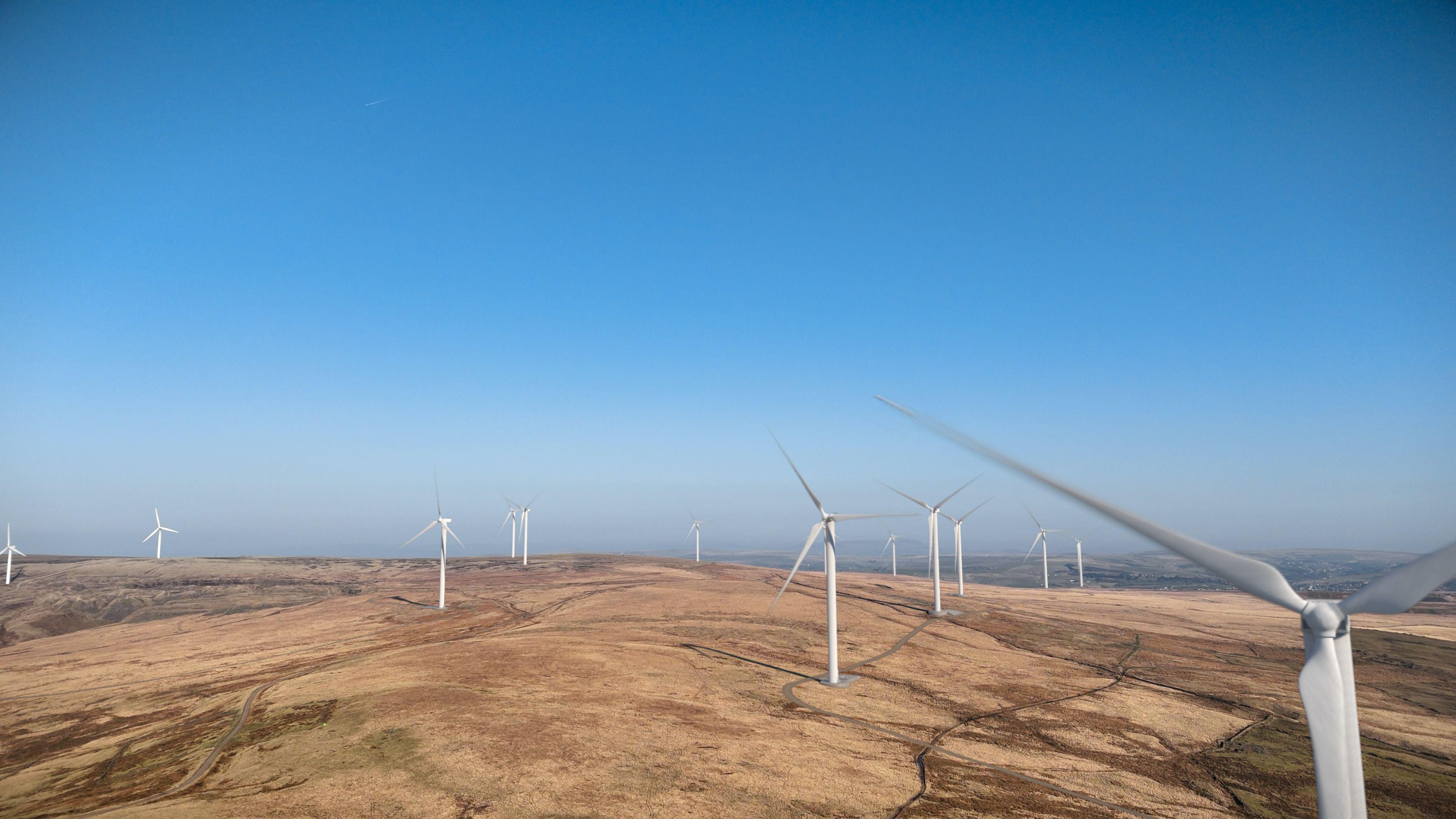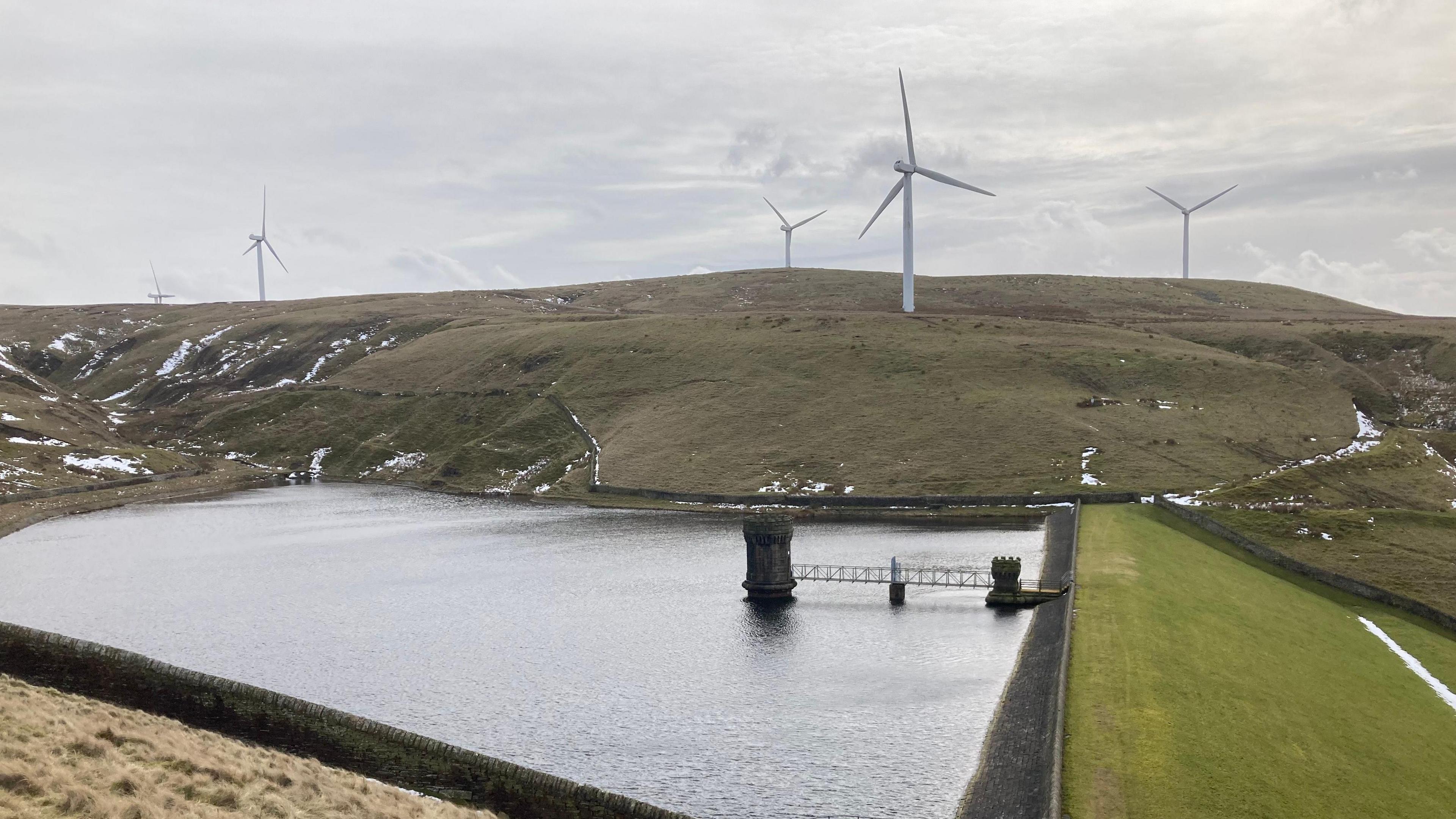Plans to expand windfarm with 17 more turbines

A computer generated image shows what the wind farm would look like
- Published
Plans to add a further 17 wind turbines at the site of England's largest onshore wind farm have been submitted.
Cubico Sustainable Investments is seeking to put the turbines on the Scout Moor II development in Rossendale, Lancashire, which is already home to 26 turbines.
A previous bid by Peel Wind Power to expand the number of turbines was supported by Rossendale Borough Council and the neighbouring Rochdale authority but was refused by the then-secretary of state following a public inquiry.
Cubico said the expansion would mean enough electricity could be generated to power about 77% of households in Rossendale and Rochdale, while campaigners said they would "dominate" the valley.
The 26 turbines already in place were erected in 2008 as part of the original Scout Moor Wind Farm.
The scheme is the first of its kind since planning rules were changed under Labour to support new projects, the Local Democracy Reporting Service said.
The previous Conservative government brought in new planning rules that effectively ruled out new onshore wind farm developments back in 2015, but those have since been eased.

The original Scout Moor wind farm was built in 2008
Cubico said the plans marked a significant step in helping the country meet its climate goals, reducing reliance on imported energy, and unlocking the full potential of homegrown renewables.
Campaigners from the Say NO to Scout Moor 2 group have said the new turbines would be higher than Blackpool Tower, dominating the valley and providing little benefit to the environment.
They said they also feared the high level of concrete used to keep the turbines standing would cause irreversible damage to the peatlands in the area.
In response to the group's concerns, Cubico said it proposed the delivery of a major moorland restoration scheme.
It said this would focus on improving and protecting the unique peatland across the site, rewetting the moor, restoring native vegetation, and improving habitats for local wildlife.
Peter Rowe, development manager at Cubico said the firm had listened to what people had said during a consultation and their input had "shaped a stronger scheme that we believe delivers for local communities and supports national energy goals".
Rochdale and Rossendale councils will now consider the plans for approval.
Get in touch
Tell us which stories we should cover in Lancashire
Listen to the best of BBC Radio Lancashire on Sounds and follow BBC Lancashire on Facebook, external, X, external and Instagram, external. You can also send story ideas via Whatsapp to 0808 100 2230.
- Published10 November 2024

- Published5 November 2024

- Published8 July 2017

- Published1 December 2015

- Published12 September 2011